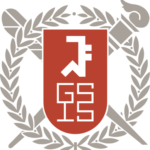Publications
Publications
Reports
ㆍ
Journal Articles
ㆍ
Journal Articles
ㆍ
Journal Articles
ㆍ
Journal Articles
ㆍ
Presentations
ㆍ
Reports
ㆍ
Reports
ㆍ
Journal Articles
ㆍ
Journal Articles
ㆍ
Journal Articles
ㆍ
Journal Articles
ㆍ
Presentations
ㆍ
Reports
ㆍ



